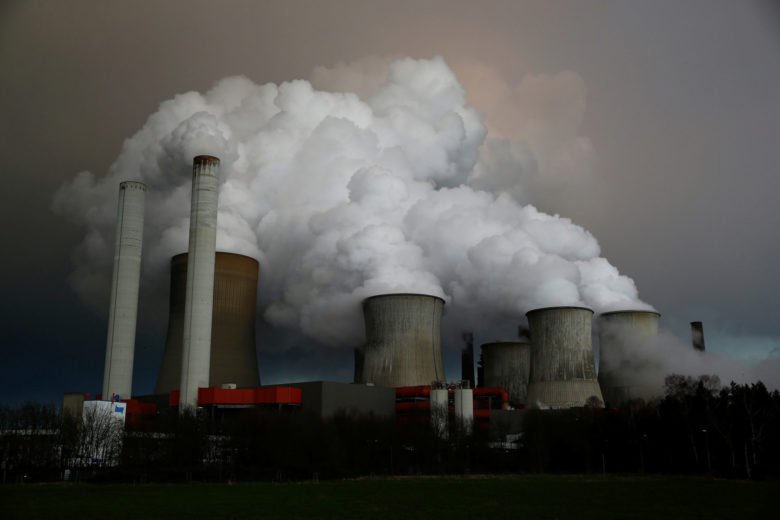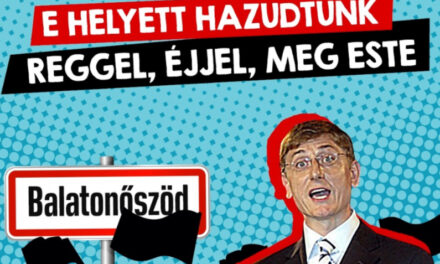If I wasn't reading it in Deutsche Welle, I would think that the internal opposition spreading horror stories or Germany's foreign enemies want to give the country a bad name. However, it was only the public service medium, which was otherwise very biased towards the government, that announced that the country, even if it has not fallen, needs SOS intervention. There is no area without acute problems. Angela Merkel's sixteen-year reign was characterized by a failed energy policy, unrestricted immigration, a poorly managed pandemic, and social and economic problems that were constantly swept under the carpet. Now the blessed/unblessed activities of the chancellor are really visible.
Let's take a look at the current situation, as reported by Deutsche Welle!
Germany is criss-crossed by highways, and bridges have been built over valleys and rivers.
About four thousand bridges across the country are in a critical state, they should be closed or quickly renovated. But nothing happens.
For example, the life-threatening North Rhine-Westphalia highway bridge at Lüdenscheid was closed to traffic just one year ago. To this day, decision-makers cannot decide whether to blow it up or renovate it. While waiting for the Dodona signals, the commuters curse in the traffic jam. Not only is time money, but the daily detour is also becoming more and more expensive due to the increased price of fuel.
Many people use rail transport, but Deutsche Bahn is not the same anymore. There are so many passengers on some ICE services that the trains can leave the stations 20-30 minutes late. If you don't have a seat ticket, the guide would drop you off, but
passengers resist, protect themselves with suitcases on the platform,
the foodie one hides in the toilet or simply ignores the instructions of the railwayman who insists on the regulations. The railway union, which still remembers the old days, is concerned about the quality of the service, and half of the long-distance trains are regularly delayed. "The current accuracy trend is unsatisfactory," the federal government said. This is how much politics can contribute to improving the untenable situation.
German mobile operators should have built out the entire mobile network in the country by the end of 2022. In the age of digitization, there is still no signal strength in an area of about ten thousand square kilometers, and you cannot make phone calls or use the Internet here. The service providers undertook to build the necessary five hundred relay stations, but only ninety-five of them were completed by the specified deadline. Perhaps this is why the expansion of digital administration is also delayed. It was already enshrined in law that it would be possible to apply for a driver's license online by the end of 2022, but local governments cannot even keep up with the stuttering digitization. "We are a very bureaucratic country with a very complicated structure," says a representative of the Association of German Cities and Municipalities. – It is not enough to say that we want to do everything online, once we have equipment and personnel problems. People and systems have to be trained for it.” It is good to know that Germany ranks only 21st out of 35 European countries in terms of the online administration of public authorities.
This brings us to the difficulties of education. Because we should not think that education-related problems are only in Hungary. If possible, the problem is even worse in Germany, but there the law prohibits teachers from taking their dissatisfaction to the streets.
There is an acute shortage of teachers, 100,000 kindergarteners and 40,000 teachers are missing from schools. I would also help you fill it up with quick tips, but the teaching career is not attractive despite the good salary.
It would be worthwhile to deal with the reason for this, but let's stick to a measured result: every fifth elementary school student does not meet the minimum requirements of the German language (due to the large number of children with a migration background, I would not say mother tongue) and mathematics. Parents in Saxony wrote to the minister because of the unfortunate conditions. In that district, with the exception of three subjects, the previous curriculum requirements were reduced. Religious education ceased, and due to a lack of teachers, biology in the eighth grade, music and social studies in the seventh grade were removed from the local curriculum.
Then there is the power regulation. "Children should not be allowed to freeze at school," warned the acting president of the conference of ministers of culture back in October. Compared to this, students in many schools sit in jackets in the classrooms, some where it is not possible to teach for days due to faulty heating. This had never happened before in Germany.
There are more and more interruptions in the electricity supply.
Not only the favorite e-cars of environmentalists overload the electrical grid, but also the heat pumps that must be installed due to the mandatory energy transition. It is fortunate that the installation of heat pumps is delayed because the manufacturer cannot keep up with the demands. There is a shortage of goods, as in the socialist planned economy, the waiting time is half a year on average. Professionals have also disappeared from the system, or were not there at all, because the construction industry lacks seventeen thousand electricians.
Deutsche Welle did not forget about healthcare either. Forty percent of ICU beds in children's hospitals are unused due to lack of staff.
“We simply have no staff, no nurses, no doctors. In my decades of working in the hospital, I have never experienced such a turnover rate. Those of us who are still here are trying to somehow maintain care"
says a pediatric nurse from Berlin.
There is a shortage of 50,000 nurses in hospital intensive care units. A nurse spoke about her shift in the emergency department on the ZDF program Frontal: "I found that the waiting time in emergency departments can be up to forty hours today. You can't take care of the patients, you simply don't have time for it, they might even die."
There are 330 medicines on the supply shortage list of the Federal Institute of Pharmaceuticals and Medical Technology; for example, antipyretics intended for children are difficult to obtain in German pharmacies. This case happened somewhere in Germany at the end of December: a feverish child with a sore throat and reddened tonsils. In the on-call pediatrician's office, the mother is diagnosed with "streptococcus A". None of the many pharmacies have the prescribed penicillin in stock. The child's condition worsens hour by hour, the desperate mother receives a prescription for a substitute antibiotic during an online consultation. But this is also not available in any pharmacy. She ends up getting the medicine through a WhatsApp group from a stranger mother who has an unopened package at home. In the meantime, seven hours have passed.
Finally, a report on the German army in Maród. Spiegel magazine published Major General Ruprecht von Butler's letter to the Inspector General of the Army.
During a shooting exercise, it was revealed that not a single one of the 18 Puma armored vehicles, which are considered to be the most modern, are operational.
Twenty years ago, the Bundeswehr ordered 350 of this state-of-the-art infantry fighting vehicle at a unit price of 7.6 million euros. Today, the device costs about 17 million and is still not in operational condition. Moreover, the Puma is not the only weak point of the Bundeswehr: recently there have been huge problems with cannons, assault rifles, helicopters and submarines, among others.
That was a lot even for me. Where did German reliability, organization and order go? Why Germany was so livable! Rushing, fire fighting, unmanageable conditions everywhere in the model country of Europe. Germany is the engine of Europe, if something happens there, it affects Europe and Hungary cumulatively. A significant German economic downturn would harm the competitiveness of German companies manufacturing in our country, but also the market chances of Hungarian products in Germany. Let's hope that this is only a temporary state, the Germans will shake themselves, the disturbed world will be restored and the desired order will return.
In any case, the fact that the German public service medium published this article full of complaints indicates a certain need for purification and clarity.
Author: historian Irén Rab
Source: Magyar Hírlap
Cover image: Illustration / REUTERS/Wolfgang Rattay













